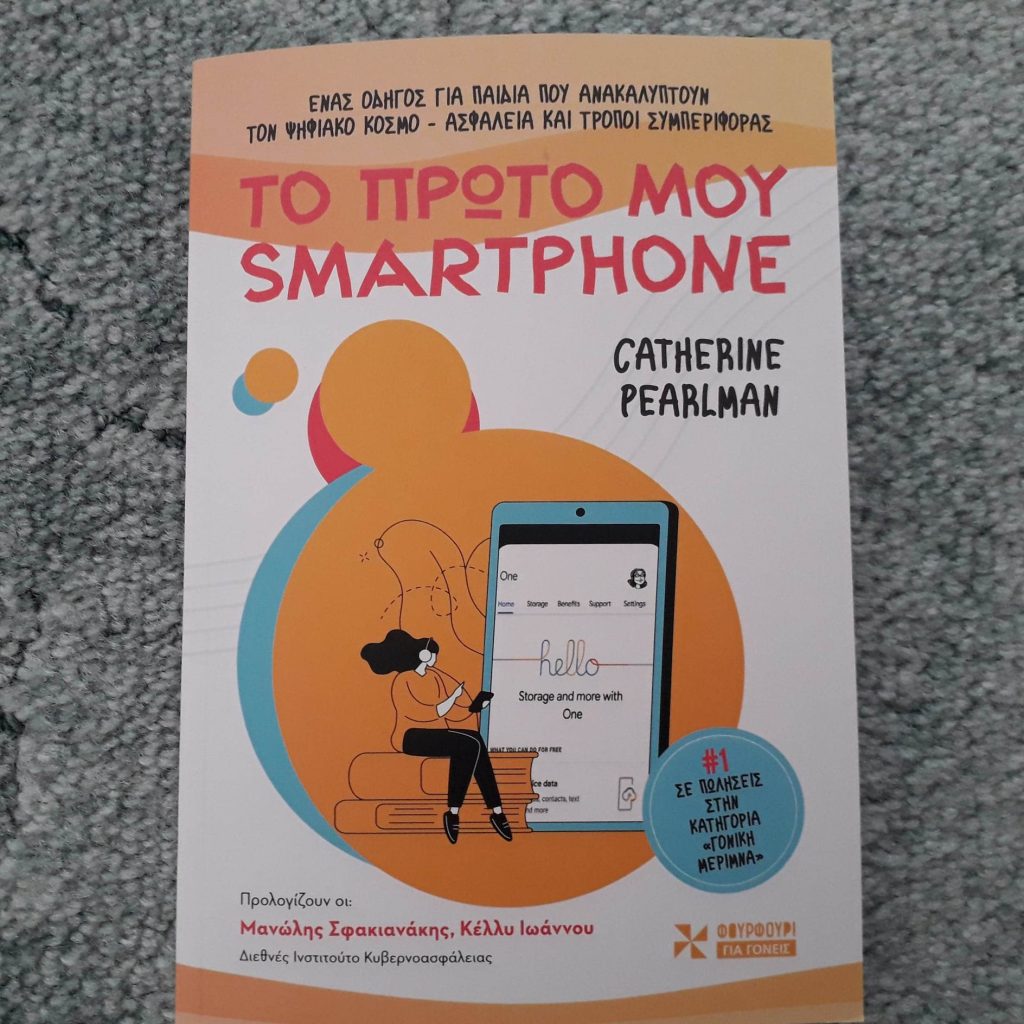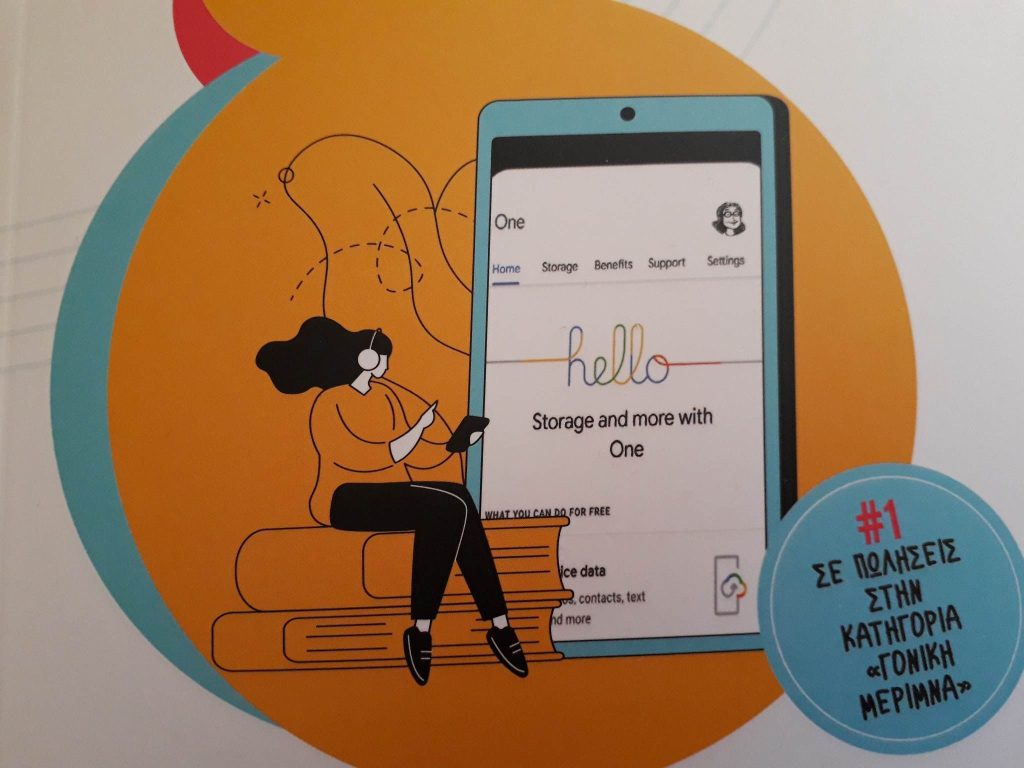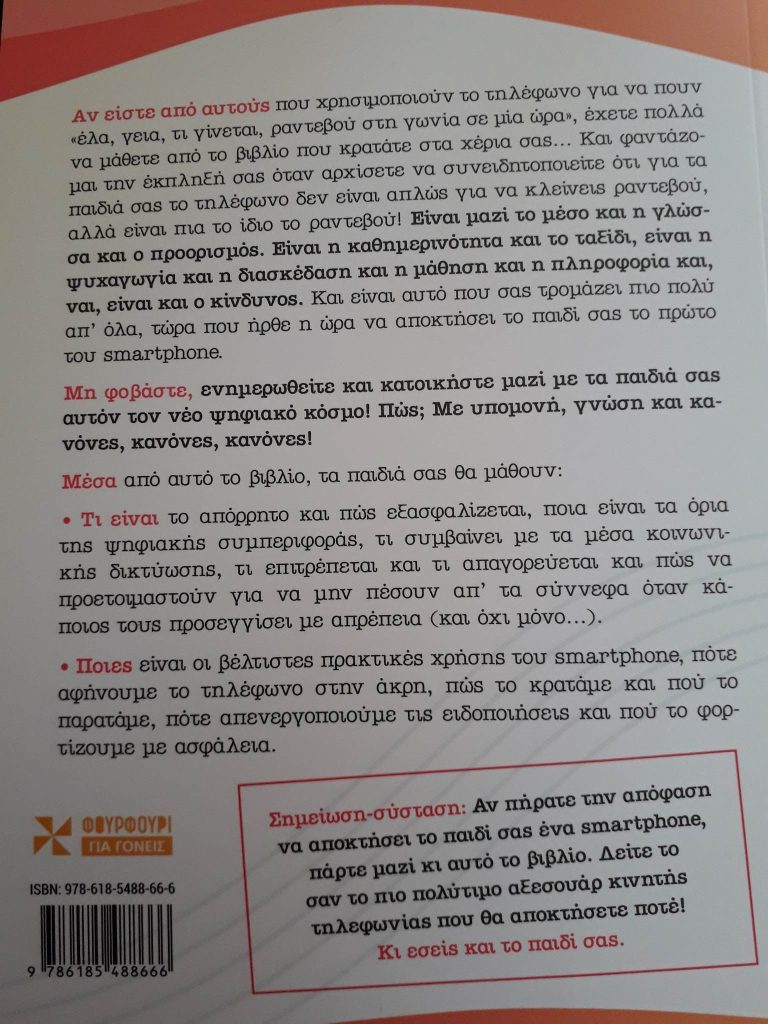How to teach children the correct use of mobile phones in time March 24, 2023 – Posted in: Books – Tags: book, parents, child, technology, Fluffy
In addition to being an author and the founder of The Family Coach®, Catherine Pearlman is a licensed clinical social worker who has worked with children and families for over twenty-five years. He holds a Ph.D. in social welfare from Yeshiva University and an M.A. in social work from New York University. Dr Pearlman is also currently an associate professor of social work at the University of Massachusetts Global. He is also the author of Ignore It!: How Selectively Looking the Other Way Can Decrease Behavioral Problems and Increase Parenting Satisfaction.
On the occasion of the release of her book in Greek by Furfouri Gia Goneis publications "My first smartphone" we looked for the main answers to questions about what prompted her to write this book and how parents can use this book to help children have a healthy relationship with their cell phone and technology in general.
Why the book "My first Smartphone' is important right now?
Smartphones and digital devices are a way of life for our children. We can't just avoid the screen for as long as possible and hope for the best. Schools are increasingly demanding access to technology. With tablets and computers kids can access almost anything even before they have a smartphone. In addition, children now increasingly socialize in online chat rooms and apps, even if they don't have a phone.

It's not all bad news. There are so many incredible uses for these devices for entertainment, education, and connecting people. However, with all this access comes many concerns and risks. Children of all ages are susceptible to scammers and suspicious people. More and more research is coming out about the emotional impact of social media. And there is easy access to pornography and sexting. Even the most conscientious parents struggle to keep children safe.
I wanted a resource that was written in a language for children, but that could also be a guide for parents. When I realized there was no resource for pre-teens and teens that discussed digital etiquette, safety, self-care, social media, cyberbullying, sexting, sleep, smart googling, and scams, I decided to write the book alone.
Why shouldn't adults and children sleep with their phones?
One of the statistics that surprised me the most while researching this book was that somewhere between 68%-80% (depending on the study) of children sleep with their phones in their rooms. Of this group, the 30% sleeps with them on their pillow.
My concern is that we know from a lot of research that when children, especially teenagers, don't get enough or good quality sleep, there are serious consequences, including more depression and anxiety, more disorganization and memory problems, more likely to gain weight and concentration.

When teens sleep with their phones, they wake up later, are interrupted throughout the night by notifications, and have more screen time overall. This makes children very tired and they cannot face the struggles of life easily.
For this problem, there is a very simple solution: buy an alarm clock. Keeping phones out of bedrooms at night helps kids get more sleep, helps them disconnect from their screens in a more formal way, and prevents late-night texting and scrolling.
I promise you, nothing good happens in texting between teenagers in the middle of the night.
You devote an entire chapter to self-care in your book. Why is self-care so important for today's teenagers?
Children today, especially teenagers, are under a lot of stress. When I was a kid, I went home after school and was pretty much out of the loop when it came to my social life. I could relax and forget about all the drama that was going on at school.
Today, this kind of social respite is not possible. Teens feel pressured to be online all the time, which can take a toll on them. Additionally, social media, while great fun, can also have a negative impact on teenagers' mental health and self-esteem.

Imagine going through adolescence with a body full of confusing daily changes and turning to social media to find only perfectly orchestrated lives with perfect-looking bodies and faces.
It's hard. Over the past decade, there has been an alarming increase in anxiety, depression and suicide among teenagers. An important way to help children is to teach them to recognize that social media can be harmful, how to assess how it makes us feel, and how to take steps to improve our mental well-being when we need it most.
What is digital consent and why should we teach it to children?
Asking permission before sharing a photo or information about anyone is called digital consent.
We live in such a public world. Everything seems to be posted online. But sometimes posting can go too far in cases of cyberbullying, doxing (revealing personal location and information) or it can just make someone feel uncomfortable.
Asking before posting should become the norm. This is basic digital courtesy that should be required as etiquette. And even if permission has been given, it should be acceptable to ask someone to remove something at any time.

This means that the kids may have no problem with your summer vacation social media posts, but maybe in a few years they'll decide they'd rather not have a picture of them fully featured. Respect your children's boundaries and teach them to respect the boundaries of their peers.
At the end of your book you ask parents to be role models by using their screen. Is this really necessary?
Asking kids to do something while they see us in our daily lives doing something else won't work with digital devices.
Your children, and especially your teenagers, are watching you.
They see what you post online, including their pictures. They see you engrossed in a message exchange when they are trying to tell you something. They see you sleeping with your phone. Children copy what they see.
So if you want your kids to have good habits with their phones, then you need to show them that you have good habits too.
Follow the same rules about when to answer your phone and when to ignore it as your kids.

I know this is not an easy task. This is extremely difficult for everyone because phones are built to be addictive. Developers work long and hard to keep our attention.
But our children also need our attention. Use apps and built-in screen time programs that encourage focus mode or family time.
What can parents who feel like they've lost the battle with screen time do?
It's never too late to change the rules and expectations in your home. Your teenagers may complain and whine. They might get angry. But if you stick to what you say, if you make it non-negotiable, they will accept the rules eventually.
What parents will find in the book "My first smartphones"
"My first smartphone" is a guide for children discovering the digital world and shows them ways of behaving to navigate the internet safely. In fact, the Greek edition is prefaced by Manolis Sfakianakis and Kelly Ioannou from the International Cybersecurity Institute, welcoming the book and recognizing its importance in our time.
Parents will find all the useful information regarding the use of a smartphone by children and solve their questions about topics such as: cyberbullying, digital fingerprinting, sexting, leakage of private data and in addition they will learn how to teach children good ways to use and navigation and how to help them have a healthy relationship with screen time and technology.
Material for the article was used from an interview of the author at Parenting Teens and Tweens.
MY FIRST SMARTPHONE • Catherine Pearlman – Brainfood Publishing
